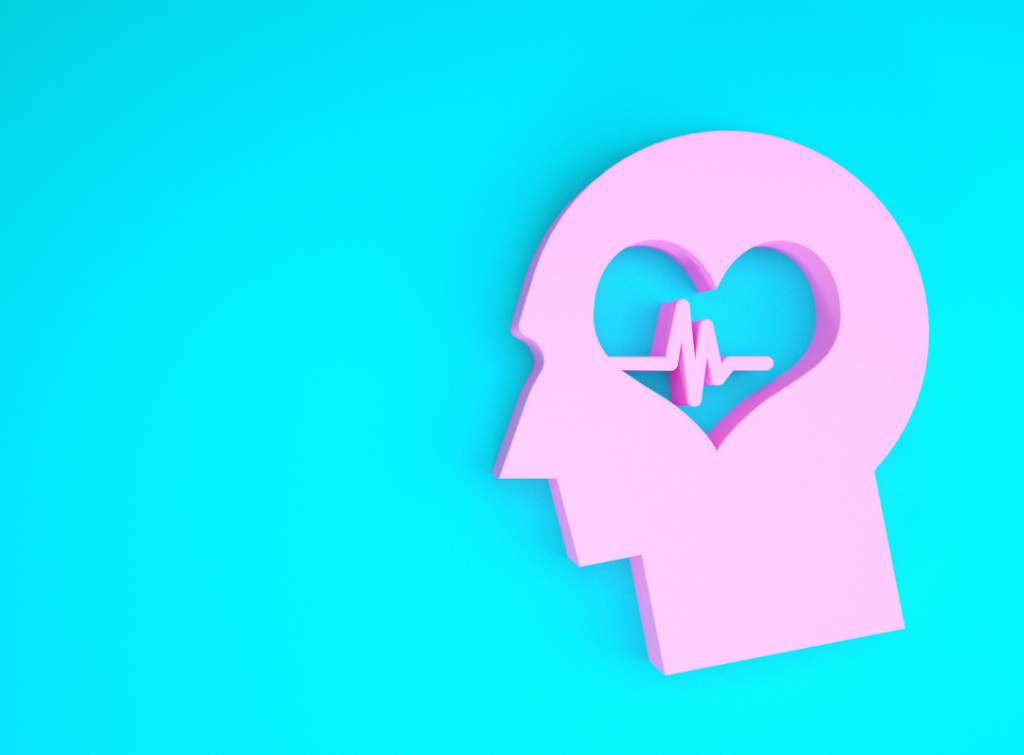Everyone needs a heart-to-heart conversation sometimes… But what about a heart-to-head?!
Monitoring the heart rate can tell us all sorts of useful things, and it can offer us a bit of a sneak peek into what is going on in the nervous system. Are we sounding a bit like a broken record? Heard those words before? Yep – we are talking, yet again, about one of our favourite tools for objectively tracking health data – heart rate variability.
Hopefully by now you have a fair idea what it is! * But this time, we are using it in a slightly different way…
It’s application in the fatigue management space is well established, but it’s not the only cohort where HRV monitoring can be of value.
With mental health conditions quickly becoming one of the reasons people take time off work in the modern age, it’s no surprise that it accounts for a large proportion of our caseload. This is, of course, not to mention the extensive evidence to support the benefits of exercise for mental health!
Have you heard of HRV monitoring for mental health recovery? Let us introduce you…
What has the heart got to do with the mind?
Mental health conditions predominantly have psychological presentation right? The symptoms and diagnosis is based on subjective information – how the person feels, what they think, how they act and respond to various situations and stressors. So what does HRV, a physiological measure, have to do with mental health?
What we have learnt in this space, and what research tells us, is that the mind and the body are very much connected. This means that there are physiological factors at play as well as psychological, for those affected by conditions such as depression, anxiety, panic attacks, and other mental health conditions.
Some are physiological implications of and others, potential contributors to the many consequences of mental health conditions. Anyone who has personally experienced a panic attack has, no doubt, experienced the strong interplay between mind and body!
As the name suggests, HRV is looking at the variability in the heart rate (i.e. the difference in beat to beat intervals). This metric gives us insight into the way that the nervous system, most easily interpreted through heart rate data, is responding to the individual’s environment and experiences.
So HRV is one way that we can capture data around some of these physiological factors, and the way that they relate to an individual’s emotional or mental state.

In practice
So with all of this in mind, what exactly does an exercise physiologist do in the mental health space?
Previously (before science blessed us with HRV), we would simply apply the magic that is exercise (alongside other routine altering components) and track changes via subjective data – i.e. by asking the client how they are feeling.
Although this did provide great results, we’re always looking for better. And as times are changing, science is progressing, and technology allows us new insights… We wanted more.
Using HRV for mental health conditions is a reasonably new avenue, but we have had so much success using it for our fatigue clients that we were quick to jump on board!
HRV, utilised in the mental health space, gives us…
- An objective means to investigate and monitor these physiological factors; which directly relate to psychological well being, function, and quality of life,
- An opportunity to initiate and expand on conversations regarding the practicalities of the management of mental health conditions; in particular the importance of stress management, adequate sleep, and regular exercise,
- A way to encourage buy-in for clients by giving them a sense of control.
We can use physiological data, to support positive psychological change!
…So what about these heart-to-head conversations?
They might have slept for 10 hours, but their nervous system didn’t adapt to allow for quality recovery…
“No wonder you’re feeling exhausted”
One day they might feel great and the next, breakfast with a friend seems impossible, with an HRV range all over the place.
“It makes sense that you feel like you’re on a roller coaster.”
They’re feeling a bit nervous, but their HRV is on a steady incline
“How about we give just a little more at the session today? You’ve got it in you.”
Now, we can not only ask our clients how they are feeling. We can also look at objective data that tells us how well they are adapting to various stressors in their lives.
Heart rate data, to guide conscious decisions.
We are very passionate about the place of programs like ours in the mental health rehabilitation space. So passionate that this year, we are launching a research study that investigates the effectiveness of such programs! Stay tuned for more information on that coming soon!
* You can check out a few of our previous blog posts if you need to catch up!
New To HRV? 5 Things To Get You Started
Let’s Get Techy! Why We Use HRV For Chronic Fatigue
Author: Tessa Neilsen Co-Author: Yolanda van Vugt
Let’s connect, find us:
Have you got a Mental Health claimant in mind that would benefit from E.P. support?
Refer to the team!
